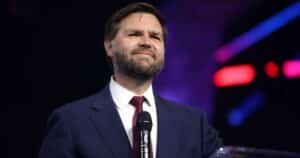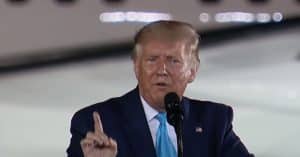Trump Reverses Order Allowing Transgender Military Service
President Donald Trump has initiated notable policy changes by revoking an earlier order from the Biden administration that permitted transgender individuals to serve in the military. This action sets the stage for a wider reversal of previous diversity, equity, and inclusion initiatives within the federal arena.
According to Fox News, upon assuming office, Trump swiftly acted on his campaign pledge to reinstate the ban on transgender troops, removing the 2021 policy known as Enabling All Qualified Americans to Serve Their Country in Uniform.
During Trump's inaugural address, he emphasized his commitment to traditional gender recognition, pledging to recognize two genders formally. His administration, spearheaded by his nominee for Secretary of Defense, Pete Hegseth, is moving quickly to rescind diversity practices across military and federal agencies.
Appointment of Key Figures and Impact
Additionally, Trump appointed Matthew Lohmeier as the undersecretary of the Air Force. Lohmeier, a former Space Force lieutenant colonel, gained attention in 2021 after criticizing military diversity initiatives, and he is known for writing a book addressing these issues. His appointment underscores Trump's focus on eliminating what he perceives as divisive policies.
Rep. Mike Rogers, chair of the House Armed Services Committee, voiced strong support for Trump's actions. He praised the administration's alignment with a military focus centered around effectiveness and combat readiness, distancing itself from diversity programs.
Broader DEI Rollbacks Envisioned
The new executive order forms part of Trump's broader vision to overturn previous DEI policies. In aligning with these efforts, an amendment to the 2025 defense policy bill imposes restrictions on transgender healthcare for minors within the military system.
The latest directives further mandate that federal recognition conforms to binary gender distinctions, which significantly affects transgender service members and individuals within federal detention centers and shelters. Such conditions alter the manner in which transgender identities are acknowledged and accommodated in federal institutions.
Implications of Transgender Services
With this order, the use of pronouns that reflect an individual's gender identity is also affected. Federal facilities adhering to these guidelines may no longer utilize preferred pronouns, directly impacting the experience and recognition of transgender service members.
However, the order does not propose a comprehensive mandate concerning bathroom use or participation in sports based on gender identity. This highlights an intentional focus on military and federal structures rather than broader societal contexts.
Political Reactions to the New Order
The White House reinforced its stance, suggesting that diversity and inclusion policies had undermined foundational values within the government. The administration's messaging emphasizes a return to meritocratic and egalitarian ideals, critiquing what they see as divisive practices.
Trump's decision, while fostering support from some quarters, opens a debate on its impact on existing service members. Estimates suggest there are between 9,000 and 14,000 transgender individuals actively serving, all of whom face uncertainty regarding their military careers.
This policy shift reinstates a climate reminiscent of Trump's first term, where the ban on transgender troops was originally introduced. As these changes unfold, affected individuals and advocacy groups may seek legal clarity and potential challenges to the executive directive.
Future of DEI Initiatives in Focus
The repercussions of these policy changes will likely extend beyond the military, potentially influencing broader federal attitudes toward diversity programs. Trump's intent signals a deliberate reversal of his predecessor's policies, with ramifications for how federal agencies approach all aspects of diversity and inclusion.
Nonetheless, legal challenges and pushback from civil rights organizations could arise, posing additional hurdles for the administration. The unfolding developments highlight the tension between executive intent and the rights of individuals affected by such sweeping policy revisions.
As the United States adjusts to these changes, stakeholders from various sectors will watch closely to assess the long-term implications and possible avenues for advocacy or reform. The trajectory of diversity policies under Trump's leadership remains a subject of keen interest and potential controversy.




